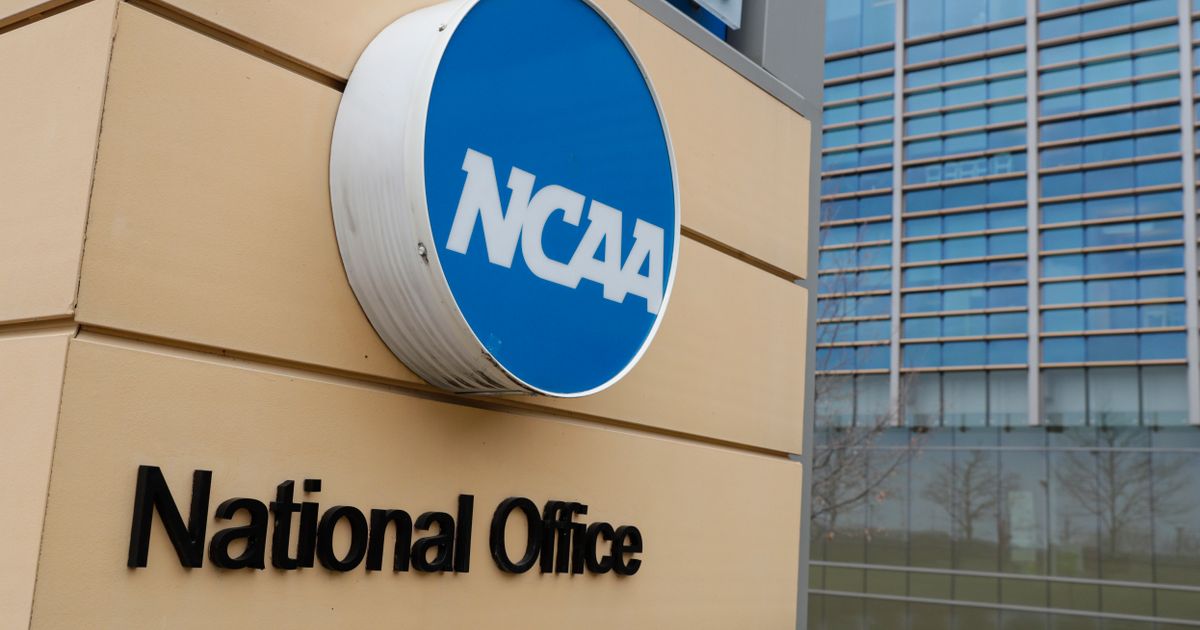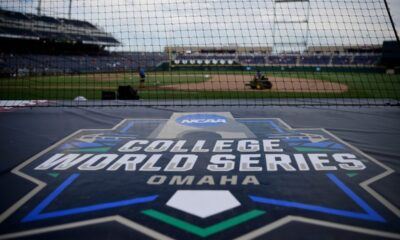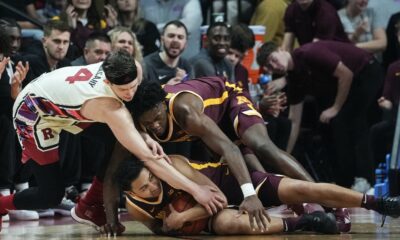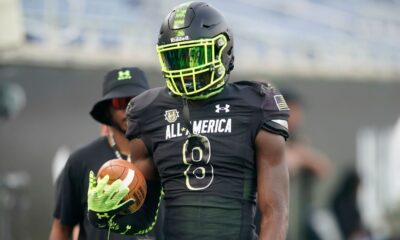
The days of postseason suspensions and drastic cuts in scholarships to punish schools for violating NCAA rules appear to be over.
Memphis received a public reprimand and three-year probation earlier this week for NCAA violations related to the recruitment and brief college career of James Wiseman, who is heading into his third season with the Golden State Warriors. The NCAA also closed an investigation into Air Force football that broke the COVID-19 recruitment moratorium.
In both cases, there will be no postseason bans or scholarship reductions. The Independent Responsibility Review Board, an external body to the NCAA’s executive branch, said in its decision in the Memphis lawsuit that it did not want to punish current athletes.
Despite the sudden influx of millions of dollars into athletes from a variety of sources to gain celebrity endorsements amid concerns about improper solicitation, such sentiment has been reinforced in recent college track and field events. It is widespread in In fact, it is being systematized. Last month, Division I’s board of directors adopted three of her proposals to change the violation process.
The board also pledged to “change the current range of penalties, including identifying appropriate types of penalties and potentially replacing postseason bans.”
It is difficult to predict what these alternatives will be, but if the goal is to avoid harming the athlete or others not involved in the violation, the options are limited. I’m here.
Nebraska law professor Jo Potuto, who spent nine years on the NCAA’s Violations Commission in the late 1990s and early 2000s, said:
“If it’s a deterrent, then the punishment must be commensurate with the crime, right?” Added Potato. “You cannot deter serious violations with penalties that are not perceived to be truly serious.”
Since January 2020, there have been at least 45 serious violations determined by the NCAA. Of those, at least 15 involved Level I allegations, the most serious and the most severe penalties. Six resulted in postseason bans, four of which were voluntarily banned.
The Memphis case went through an IARP created in response to an FBI investigation into corruption in college basketball, which has now been called off. Repeal of IARP is one of several recommendations put forward by the NCAA’s Division I Transformation Committee earlier this year and recently adopted by the Board.
As college sports move toward decentralized governance and general deregulation by the NCAA, it is hoped that a more streamlined enforcement process will be created.
If justice is swift, it is more likely to be applied fairly.
“The reality is that the current system is broken,” said Atlantic Coast Conference Commissioner Jim Phillips, a member of the Transformation Commission. “I think everyone in associations and companies understands that. It’s not an effective process when it comes to imposing.”
IARP continues to process cases resulting from the FBI’s investigations into Louisville, Arizona, Kansas, and LSU. These have been in the NCAA enforcement pipeline for years. A related lawsuit against Oklahoma did not pass IARP, resulting in the Cowboys being banned after the season.
Ohio University professor and former compliance director of several schools, David Ridpath, said that even if IARP fails, NCAA enforcement is best handled by an independent body.
“No system is perfect, but if we do eventually build an enforcement system, it should provide basic due process protections and then be able to punish people consistently.” He said.
In the Memphis case, Wiseman received $11,500 from Hardaway in 2017, even though Hardaway was coaching at a local high school. Hardaway was hired as Memphis’ coach in March 2018, and Weisman transferred to the Tigers in November 2018.
The NCAA charged Memphis with four Level I and two Level II violations. This included a lack of institutional control, head coach responsibilities, and neglect of oversight. In the past, this sort of allegation could have terrified athletic directors, but in 2010, Reggie Bush’s misconduct led to widespread scholarship sanctions, revocation of wins, and post-war Southern California. Instead of a season suspension, probation and fines seem much more likely. bonus case. These penalties set USC football back for years.
Ultimately, IARP essentially reduced the charges against Memphis and cleared Hardaway of wrongdoing.
The NCAA is losing influence following last year’s Supreme Court ruling, with more powers being transferred to its member councils, but schools still want the association to handle enforcement. is also clear.
But what exactly is being enforced?
Athletes can now be paid for endorsement and sponsorship deals, and collegiate sports are still waiting from Congress to regulate name, image and likeness compensation and want that help.
Additionally, as the revenues of schools at the pinnacle of major college sports soar, the NCAA tends to loosen restrictions on the financial benefits it can provide to its athletes.
Gabe Feldman said, “Until schools, boosters, and athletes are clear and certain about what they can and can’t do, many people realize that it’s dangerous to impose serious penalties when it’s not clear what they can and can’t do. I think they are aware,” said Tulane’s director of sports law programs. “And I think it’s hard to impose harsh punishments without clear rules.”
Still, punishments directed at schools (fines) and coaches (suspensions) could be harsher and longer, Feldman said.
Potuto said with so much money flowing into the top of college track and field, it’s doubtful the fines could be large enough to be a real deterrent. We understand the desire not to make the previous administration pay for their sins, but we can mitigate the potential harm by relaxing the transfer rules.
“I make one prediction: if there is a move to significantly reduce the frequency of imposing penalties in five years, there will be a move to reverse them.
___
Follow Ralph D. Russo at https://twitter.com/ralphDrussoAP and listen at http://www.appodcasts.com.
___
Learn more about AP College Football: https://apnews.com/hub/college-football and https://twitter.com/AP_Top25. Sign up for AP’s College Football newsletter: https://bit.ly/3pqZVaF















